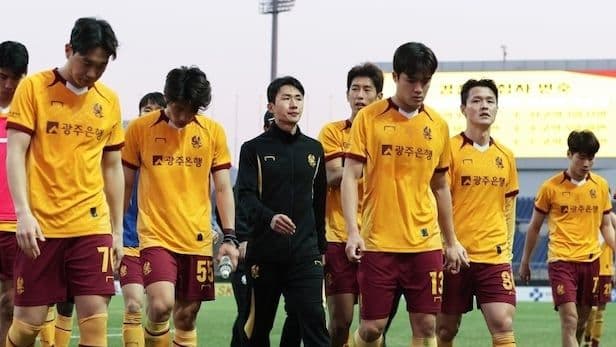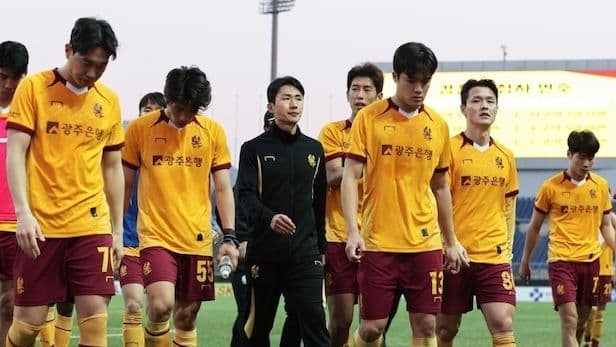Why Gwangju FC's 'Ineligible Player' Saga Shook K League—But Didn’t Change the Results

How the Gwangju FC Ineligible Player Scandal Began
Did you know? The Gwangju FC saga started with a paperwork error! In December 2024, Gwangju FC was sanctioned by FIFA due to an unpaid solidarity contribution related to the signing of Albanian striker Asani. The club failed to notice FIFA’s registration ban because of administrative oversights, including a key staff member’s leave of absence. As a result, Gwangju registered and fielded over 10 new players for the 2025 season, completely unaware of the ban. This administrative slip would soon spiral into one of the most talked-about controversies in K League history.
The Domino Effect: How Other Clubs Reacted

After the news broke in May 2025, chaos ensued. Several K League 1 teams, starting with Pohang Steelers, officially challenged the legitimacy of Gwangju’s match results, claiming ineligible players had participated. According to league rules, clubs can file a protest within 48 hours of a match if they suspect an ineligible player was fielded. By July, at least seven teams had submitted formal complaints. The league was thrown into uncertainty, with some demanding Gwangju’s matches be forfeited and points deducted.
What FIFA and KFA Decided: No Forfeits, No Point Deductions
Here's where things got interesting! The Korea Football Association (KFA) and FIFA both reviewed the case. The KFA concluded that the error was an unintentional administrative mistake, not a deliberate attempt to cheat. FIFA sent an official letter stating that player eligibility in domestic competitions should be determined by the national association’s rules. Since Gwangju’s new signings were properly registered in the Korean system and played without objection from the KFA, neither FIFA nor the KFA considered them ineligible retroactively. The league announced that match results would stand, and there would be no forfeits or point deductions.
Community and Fan Reactions: Outrage, Relief, and Memes
Fans were divided! On Naver and Tistory blogs, as well as forums like DC Inside, FM Korea, and PGR21, reactions ranged from outrage to resignation. Some fans argued that the league’s credibility was at stake and called for strict punishment. Others sympathized with Gwangju, blaming the administrative chaos rather than the players or coaches. A Naver blog post summed it up: 'This is a wake-up call for all K League clubs—get your paperwork in order!' On DC Inside, about 60% of posts expressed frustration at the lack of penalties, while 40% supported the decision to keep match results unchanged. Representative comments included: 'If this happened in Europe, heads would roll,' and 'At least the players weren’t at fault.'
Cultural Insight: Why This Matters in Korean Football
For international fans, it might seem like just another paperwork blunder, but in Korea, football is deeply tied to notions of fairness and honor. The controversy highlighted the importance of administrative transparency and the unique pressure on clubs to maintain integrity. Unlike some Western leagues, where legal battles can drag on for months, Korean football authorities prioritized league stability and player welfare. The incident also sparked debate about the solidarity contribution system—a FIFA rule meant to reward youth clubs when players move abroad—which many Korean fans found confusing.
Coach Lee Jung-hyo Speaks Out: Responsibility and Lessons Learned
Gwangju FC’s head coach, Lee Jung-hyo, publicly apologized for the turmoil, stating, 'We caused trouble for many clubs. Even though there was no official punishment, we must take responsibility and improve our internal systems.' He emphasized that the team would overhaul its administrative processes to prevent future mistakes. Players reportedly struggled with focus during the controversy, but Lee praised their professionalism. The club’s transparency and willingness to admit fault won respect from some fans, even as others demanded stricter oversight.
What’s Next? Will There Be More Sanctions?
Although FIFA and the KFA closed the case regarding match results, both organizations left the door open for possible future sanctions if similar administrative errors occur. The KFA has pledged to strengthen communication with clubs and streamline registration procedures. For now, Gwangju FC keeps its points, but the incident serves as a warning to all K League teams. As one Tistory blogger wrote, 'This could have happened to any club. Let’s hope it never does again.'
The Fan Fandom: Humor, Frustration, and Hope
Korean football fandom is known for its passionate, sometimes sarcastic, commentary. Memes about 'paperwork FC' trended on social media, poking fun at the situation. Yet, beneath the jokes, there was a genuine call for reform. Fans on FM Korea and PGR21 debated whether the league’s decision would set a dangerous precedent or simply reflect the reality of modern football bureaucracy. The consensus? Korean football needs both stronger administration and more empathy for honest mistakes.
Conclusion: Lessons for K League, Clubs, and Fans
The Gwangju FC ineligible player controversy is now officially over, but its impact will linger. The episode exposed weaknesses in club administration and league oversight, but it also showed the resilience of Korean football culture. For international fans, it’s a reminder that the beautiful game is as much about what happens off the pitch as on it. Will K League clubs learn from Gwangju’s ordeal? Only time will tell—but one thing’s for sure: paperwork matters, and so does trust.
Discover More

Why the K League's Gwangju FC 'Ineligible Player' Controversy Finally Ended – What Every Global Fan Should Know!
Gwangju FC's alleged 'ineligible player' saga in the K League has been resolved, with FIFA and the KFA confirming that there was no violation. This post unpacks the controversy, administrative background, fan reactions, and its cultural context for international readers.

Thomas Müller's Emotional Farewell: 25 Years of Bayern Munich, One Last Dance Ends in Tears
Thomas Müller, Bayern Munich’s living legend, played his final match for the club after 25 years. His emotional goodbye, the fans’ reactions, and the cultural significance of his departure mark the end of an era in German football.